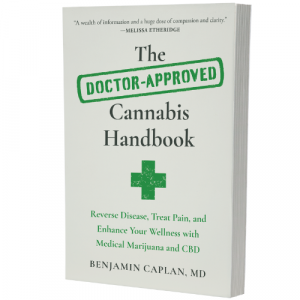Introduction:
Thinking about cannabis and your gut health might as odd as thinking about syrup and the strength of your vision, but it need not be so, As the saying goes, the gut is the “second brain” of the body, and understandably so. From digestion to immune function, the gut plays a pivotal role. What you may find surprising is the emerging role of cannabis in the gut health narrative. From skeptical views to scientific studies, this blog aims to shed light on the evolving dialogue surrounding cannabis and gut health.
If you are looking for explanations, definitions, and charts that explain the significance of gut health and many aspects of health and wellness that play into a healthy microbiome, please check out this page on CaplanCannabis.com: https://caplancannabis.com/cannabis-and-the-gut-microbiome-a-comprehensive-guide
The Many Facets of Cannabis & Gut Health
Firstly, it’s essential to recognize the existing skepticism around cannabis. Critics often question its medical applications and sometimes categorize it as a mere recreational tool. However, this perspective tends to ignore the growing body of evidence-based research that has begun to illuminate cannabis’ potential benefits, particularly when it comes to gut health. For instance, studies suggest that cannabinoids like CBD can act as bacteriostatic agents, which inhibit bacterial growth, providing potential relief in conditions like Inflammatory Bowel Disease (IBD) (Nagarkatti et al., 2009).
Then comes the newcomer, full of curiosity and a bit hesitant. You’ve heard about prebiotics in oatmeal and probiotics in yogurt, but cannabis? Interestingly, cannabis compounds like CBD and THC have shown promise in modulating the gut microbiome, potentially leading to anti-inflammatory effects (Alhouayek & Muccioli, 2012). Whether you’re just looking to ease digestive discomfort or manage a chronic condition, the possibilities are intriguing.
For those seasoned in using cannabis for medicinal purposes, understanding its role in gut health can be an enlightening experience. Perhaps you’ve already felt some gut-related benefits, an experience that aligns with the evidence suggesting cannabis’ role as a bactericidal antibiotic (Appendino et al., 2008). This could represent a new frontier in battling antibiotic-resistant bacterial strains.
As a healthcare provider, one cannot overlook the nuanced and multifaceted nature of cannabis in medical care. While there’s promise, there’s also a call for more robust, large-scale studies to better understand both the benefits and potential drawbacks, including how cannabis interacts with the microbiome to affect conditions like IBS and IBD.
Clinical Perspective:
With compassion at the core of medical practice, it’s vital to recognize the potential cannabis holds, not only as a complementary treatment but perhaps even as a cornerstone in gut health management. The growing body of evidence offers optimism about the versatile utility of cannabis—from bacteriostatic to bactericidal properties. It’s a call to integrate this burgeoning knowledge into practice cautiously and judiciously.
Who are the people who tend to have gut microbiome issues?
Individuals with specific dietary patterns or lifestyle choices often face disruptions in their gut microbiome. For example, a diet rich in processed foods, sugars, and saturated fats but low in fiber can significantly alter gut bacteria, making the individual more susceptible to inflammation and gastrointestinal issues. Similarly, those with excessive alcohol consumption or high-stress lifestyles often report an imbalance in their gut flora. Vegans and vegetarians might face certain deficiencies in gut microbiome diversity due to the absence of animal-based probiotics. Prescription medications, especially antibiotics, can also wreak havoc on the microbiome, wiping out both bad and beneficial bacteria. It’s a complex landscape, where one’s diet, lifestyle, and even mental well-being can significantly influence gut health.
Additional Evidence & Citations:
- Nagarkatti, P., Pandey, R., Rieder, S. A., Hegde, V. L., & Nagarkatti, M. (2009). Cannabinoids as novel anti-inflammatory drugs. Future medicinal chemistry, 1(7), 1333–1349.
- Alhouayek, M., & Muccioli, G. G. (2012). The endocannabinoid system in inflammatory bowel diseases: from pathophysiology to therapeutic opportunity. Trends in molecular medicine, 18(10), 615–625.
Conclusion:
Cannabis and gut health—an intricate relationship, indeed. Whether you’re skeptical, new to cannabis, a healthcare provider, or an experienced user, the conversation around cannabis is getting more nuanced and evidence-based by the day. As we understand this fascinating plant better, we can hope to harness its full potential for the betterment of gut health.
📗 Note: This page is your first coffee of the day; the book’s your whole artisan coffee shop. Get brewing here 📗



I got good info from your blog